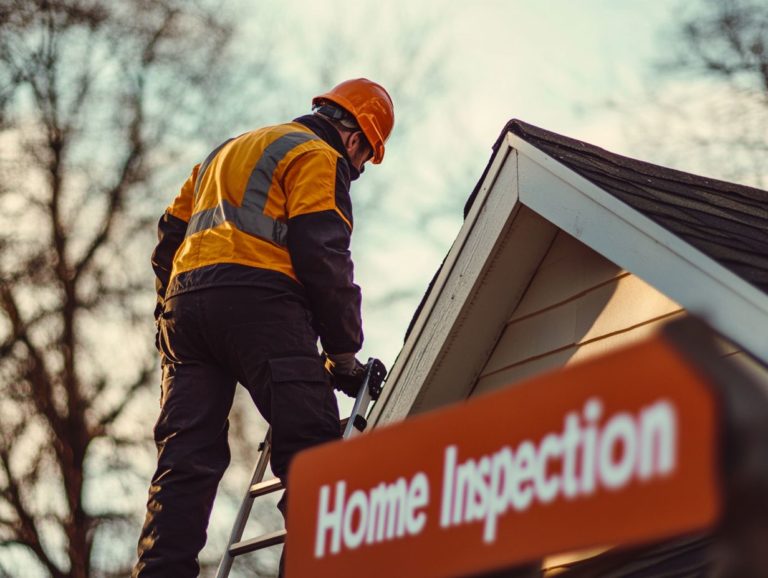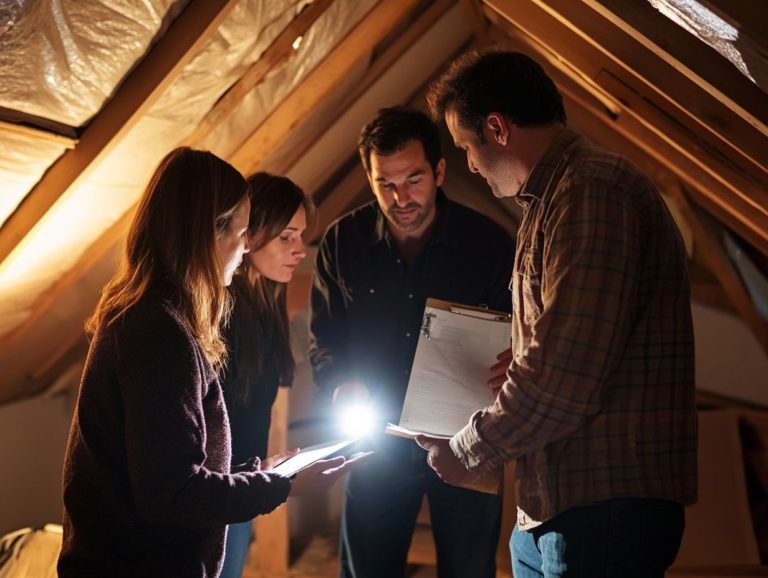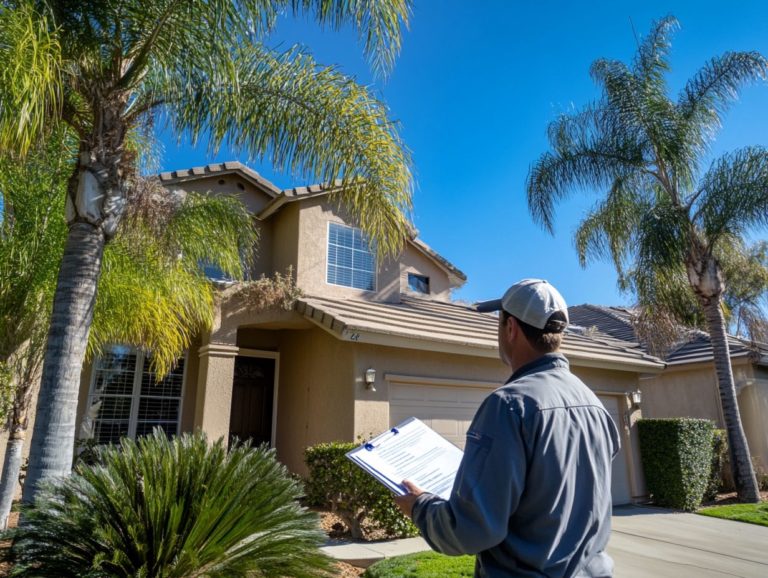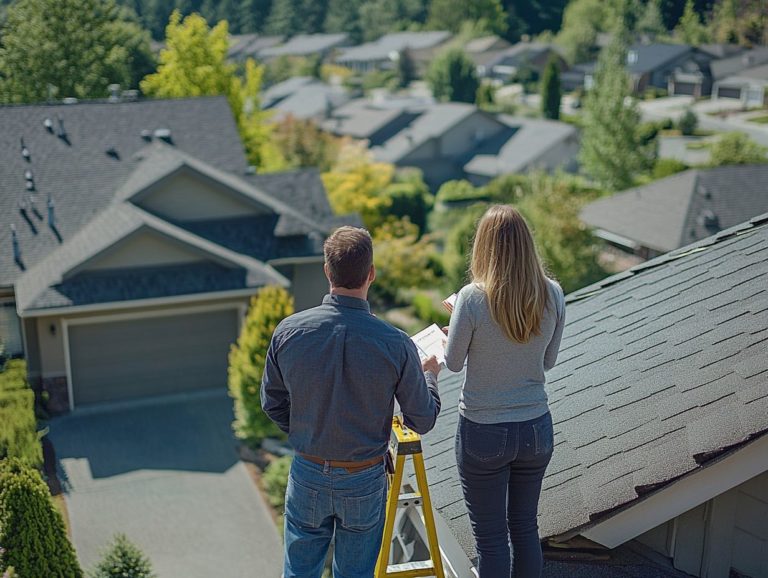Understanding Home Inspection Costs
Navigating the world of home inspections can feel overwhelming, particularly when it comes to understanding the associated costs. Whether you’re stepping into the market as a first-time buyer or you’re a seasoned homeowner, having a clear understanding of what to expect can save you both time and money.
This article delves into the essentials of home inspections, outlining their purpose, what they involve, and the various factors that influence costs. You ll discover average pricing, gain insights into money-saving tips, and learn about the myriad benefits of ensuring a comprehensive inspection.
Join us as we reveal the key elements that will empower you to make informed decisions throughout your home buying journey.
Contents
Key Takeaways:
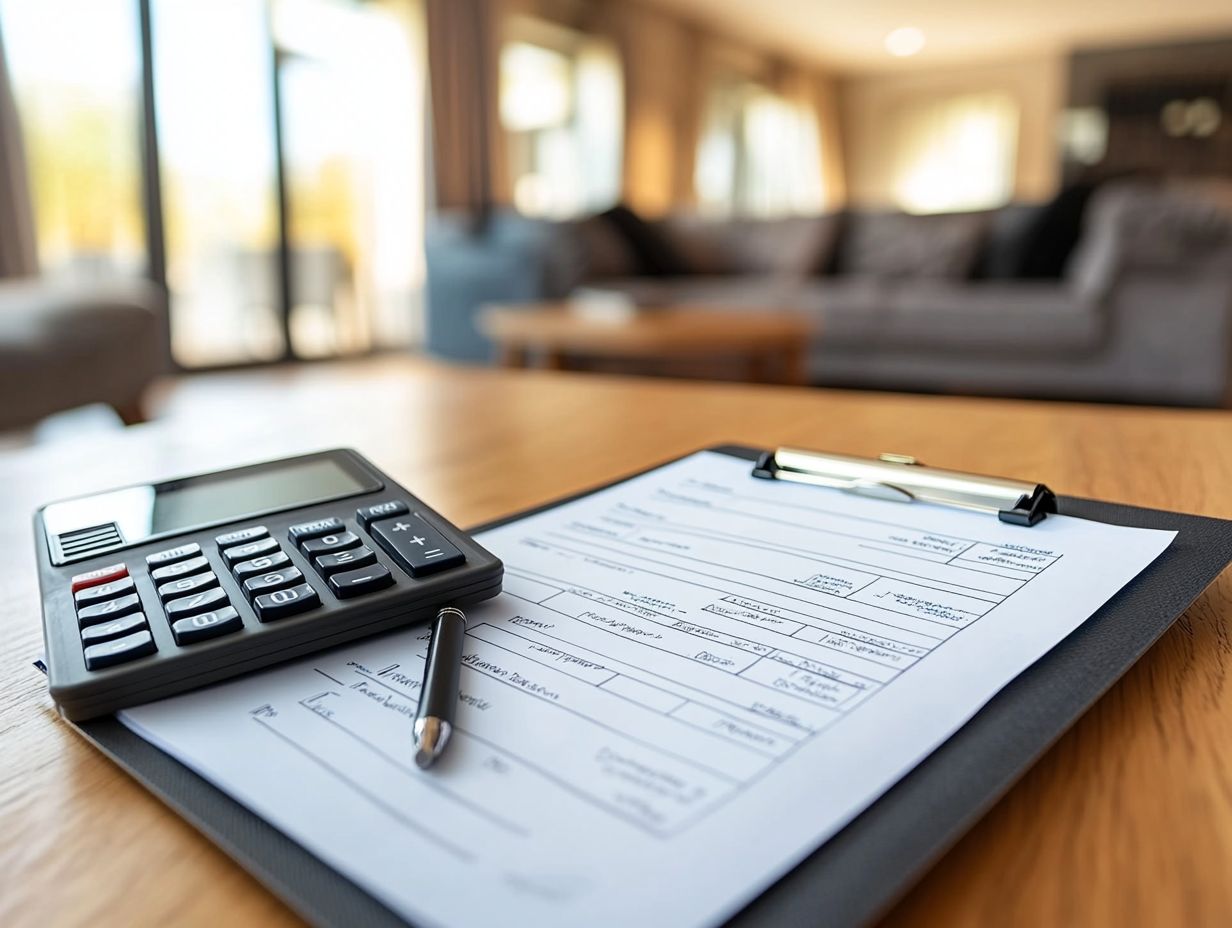
Home inspections are vital for safety and quality. Various factors, including size, age, and location, greatly influence the cost of a home inspection. Negotiating and budgeting can help save on home inspection costs, but prioritizing quality is crucial for long-term benefits.
What is a Home Inspection?
A home inspection is a detailed assessment of a property’s condition, offering vital insights into structural issues, safety hazards, and necessary repairs. This process is done by a trained home inspector and involves an in-depth examination of key elements like electrical systems, plumbing, heating, ventilation, and air conditioning (HVAC) systems, and the overall integrity of the home.
The resulting inspection report becomes an invaluable resource for you as a potential homeowner, enabling you to make informed decisions regarding your financial investment while helping to mitigate future risks related to hidden damage.
Factors that Affect Home Inspection Costs
Understanding the factors that affect home inspection costs is essential for you as a homebuyer aiming to make informed financial decisions. The average cost of a home inspection can fluctuate considerably due to several key elements, including the size and age of the property, its location, and accessibility.
If you choose extra services like mold assessments or radon testing, these can increase your inspection fees. Make sure to consider these factors in your budget so you’re fully prepared.
Size and Age of the Home
The size and age of a home are critical factors in determining your home inspection costs. Generally, larger homes require more time and resources for a thorough evaluation.
This becomes especially relevant when you consider the variety of systems and features that differ across property types. For example, a sprawling estate may require a detailed examination of multiple HVAC units and plumbing systems. An older home might reveal hidden complexities, like outdated wiring or structural concerns.
As the age of a property increases, you may encounter unique challenges during the inspection, such as the need to comply with newer building codes and identify materials that may not meet contemporary safety standards. Therefore, it’s wise to anticipate variations in inspection services according to different property sizes and ages.
Location and Accessibility
Location and accessibility are critical factors in determining home inspection costs. Properties in urban settings often face different logistical considerations compared to their rural counterparts.
In urban environments, higher demand and competition among inspectors can lead to increased prices. The density of properties often necessitates a more efficient approach to inspections, impacting how costs are calculated.
Conversely, rural areas may present unique challenges, such as longer travel times and a limited number of available inspectors both of which can influence pricing as well.
Ultimately, understanding how local market conditions interact with these accessibility factors is essential for you as a prospective homebuyer. This knowledge ensures you can budget effectively for comprehensive inspections, regardless of geographical variances.
Ready to get started? Schedule your home inspection today!
Additional Services and Add-ons

Additional services and add-ons can significantly impact the overall costs of your home inspection. Many homebuyers choose special inspections to ensure a thorough check-up of the property.
In today s market, hazards such as mold, asbestos, and radon present serious risks. These additional inspections are often seen as crucial by prospective homeowners.
For example, mold inspections can uncover hidden growth that may lead to health issues. Assessing for asbestos is vital in older homes where this material was commonly used. Radon tests are necessary for detecting this odorless gas, which can infiltrate homes without detection, potentially affecting air quality.
Each of these specialized inspections enhances the safety of the property and influences the final pricing of the inspection package. Adding these services generally incurs incremental fees that reflect the thoroughness of the examination you re investing in.
Average Home Inspection Costs
Home inspection costs can vary significantly depending on the region, reflecting local market conditions and the intricacies involved in property evaluations.
As a homebuyer, expect inspection fees to range from a few hundred dollars to over a thousand, influenced by your specific location and various factors at play. For a deeper insight, check out understanding the cost breakdown of home inspections.
While national averages offer a useful benchmark, regional averages provide a clearer understanding of what to expect in your area.
National and Regional Averages
Nationally, average home inspection costs range between $300 and $500. However, this can vary significantly depending on your location, so it’s important to look into understanding home inspection costs in your area.
Take Pennsylvania, for example. Home inspections there often fall on the lower end of that range, thanks to a competitive market and a good number of qualified inspectors.
Meanwhile, if you find yourself in the hustle and bustle of New York City, be prepared to pay over $800. The high demand and unique complexities of urban properties really drive up costs.
Factors like the size of your home, its age, and local regulations also play crucial roles in determining your final inspection fee. These variations reflect the diverse real estate landscapes across the country, so it s wise to do your homework before diving in.
How to Save on Home Inspection Costs
Homebuyers looking to trim home inspection costs can adopt various strategies to stay within budget while still accessing essential inspection services.
Effective negotiation with home inspectors, understanding the specific services needed, and managing your budget wisely are vital steps to reducing overall inspection fees.
By researching different inspection services and comparing various offers, homebuyers empower themselves to make informed decisions about their financial investments.
Tips for Negotiating and Budgeting
When negotiating home inspection costs, come prepared and informed to secure the best possible outcomes. This preparation involves understanding typical expenses and conducting thorough research into local market conditions.
By arming yourself with knowledge about comparable properties, recent sales, and inspection standards, you can approach negotiations confidently. Open and respectful communication with inspectors fosters clearer discussions about necessary repairs and their impact on overall pricing.
You can also use effective budgeting strategies by crafting a comprehensive financial plan that includes inspection costs and potential repairs. This ensures you maintain a holistic view of your future investment.
Importance of a Quality Home Inspection
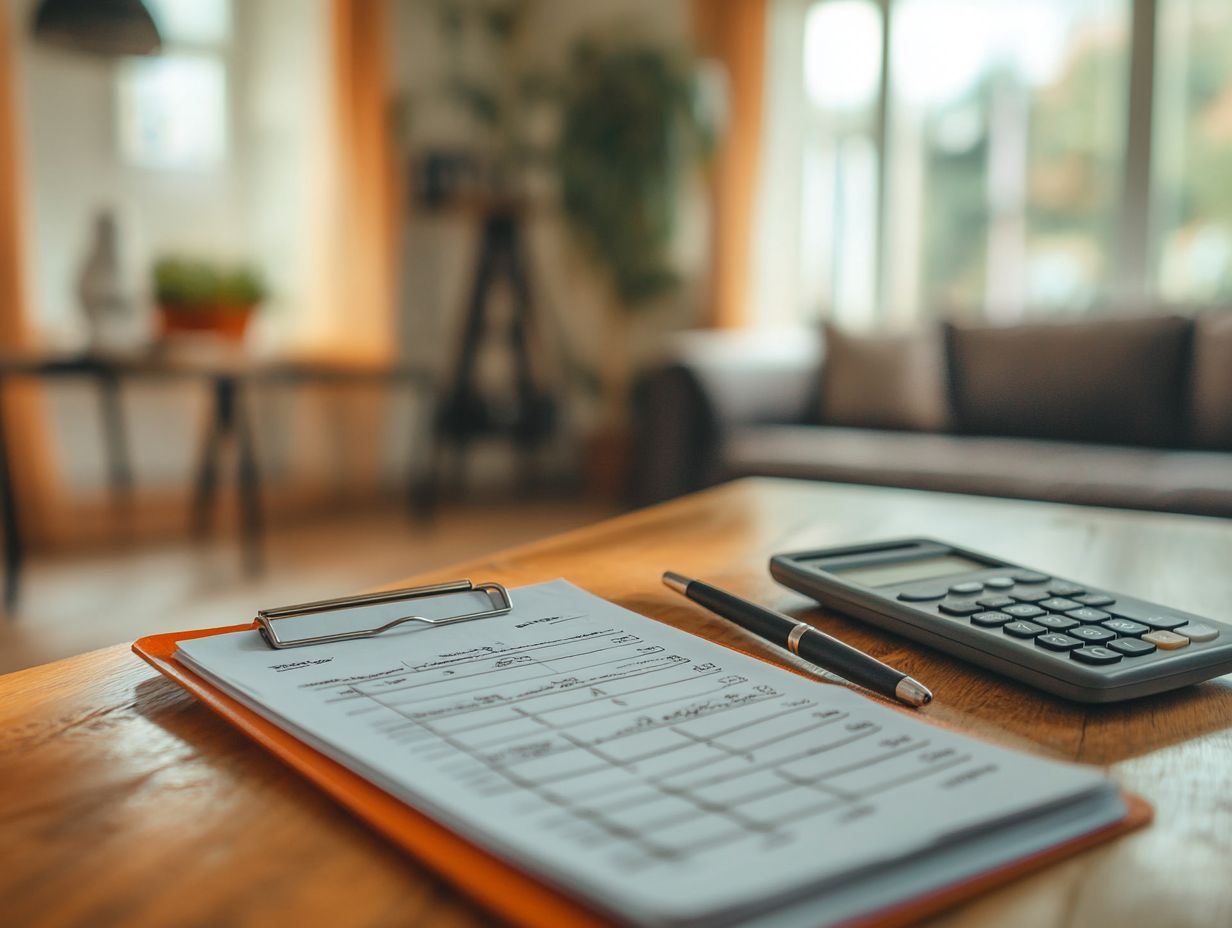
A quality home inspection is essential for you as a homebuyer. It acts as a vital tool for evaluating the safety and overall condition of a property.
The importance of investing in a thorough inspection cannot be overstated. It helps you uncover potential structural issues, plumbing problems, and hidden damage, which could result in costly repairs in the future.
Furthermore, a comprehensive inspection report offers peace of mind, ensuring that you make informed and sound financial decisions regarding your new home.
Don t miss out on crucial inspections! Schedule your home inspection today to ensure you make the right investment!
Value and Benefits of a Thorough Inspection
The value of a thorough home inspection goes far beyond just evaluating the property. It enhances the safety and security of your home.
By carefully checking essential areas such as electrical systems, plumbing, and structural integrity, a home inspection can uncover potential safety hazards that might otherwise slip under the radar.
This proactive approach not only protects you and your loved ones but also shields your wallet from unexpected repair costs. It allows you to tackle issues before they balloon into expensive headaches.
The insights you gain from a comprehensive inspection can truly change the way you view your property. This ensures it remains a valuable asset.
Ultimately, you ll enjoy the peace of mind that comes from knowing your living environment is secure and well-maintained.
Special Inspections
Special inspections think mold, lead paint, termites, asbestos (a hazardous material that can cause serious health issues), and radon are absolutely essential for ensuring your home s safety and protecting your future investment.
These specialized evaluations deliver critical insights that can profoundly impact your decision-making process as a buyer. For example, mold assessments can reveal hidden growth that may endanger your health, while lead paint inspections are particularly crucial in older homes due to the risks they pose to children.
- Termite inspections reveal hidden pests that threaten your home’s structure.
- Asbestos testing is imperative for homes built before the 1980s.
- Radon testing is crucial; don t overlook it, as elevated levels of this odorless gas can lead to serious health concerns.
By embracing these thorough inspections, you enable yourself to make informed decisions, ensuring that your chosen property is not only safe but also a sound, long-term investment.
Frequently Asked Questions
What is included in a home inspection cost?
The cost of a home inspection typically covers a thorough evaluation of the structure, interior, and exterior of a home. This includes checking the foundation, roof, plumbing, electrical systems, and any major appliances. Some inspectors may also offer additional services such as radon or mold testing for an additional fee.
How much does a home inspection cost?
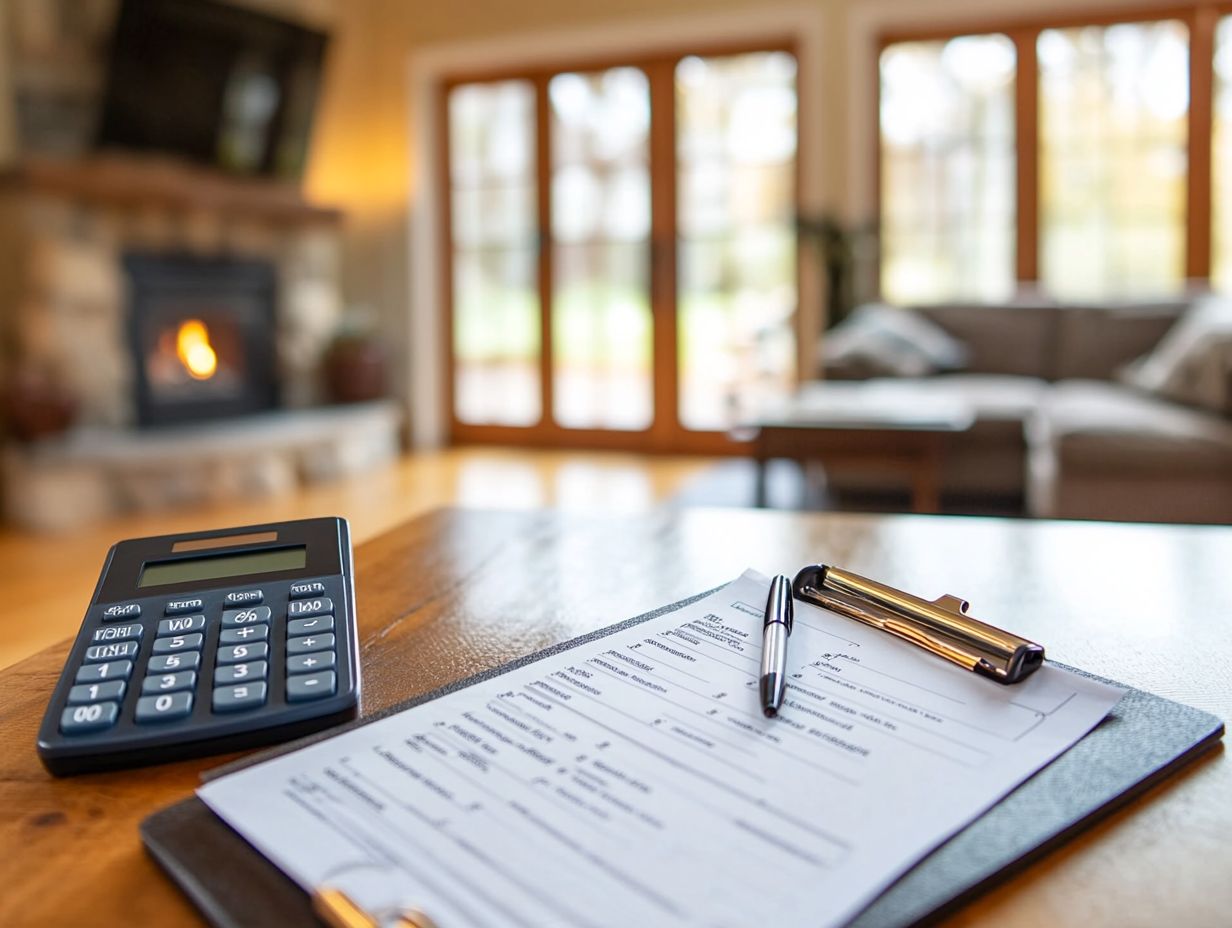
The cost of a home inspection can vary depending on factors such as the location of the home, its size, and the experience of the inspector. For more detailed information, refer to the understanding home inspection fees and costs, as on average, a home inspection can cost anywhere from $300 to $500.
Do home inspection costs vary by region?
Yes, the cost of a home inspection can vary by region. Factors such as the cost of living and demand for home inspections can influence the price. It is important to research and compare prices from different inspectors in your area to get an accurate understanding of the cost.
Are there any additional fees I should be aware of?
In some cases, there may be additional fees for extra services such as radon or mold testing, as well as for larger homes. It is important to clarify with the inspector beforehand to understand the full cost of the inspection.
Do I need to pay for a home inspection if I am not buying the property?
If you are not buying the property, it is not necessary to pay for a home inspection. However, if you are considering purchasing the property, it is highly recommended to get a professional home inspection to ensure there are no major issues with the property.
Can I negotiate the cost of a home inspection?
In most cases, the cost of a home inspection is non-negotiable. However, you can always ask the inspector if they offer any discounts or packages for multiple services. It is important to remember that a thorough and professional home inspection is a valuable investment in the long run.
Ready to ensure your home is safe? Schedule your home inspection today!


